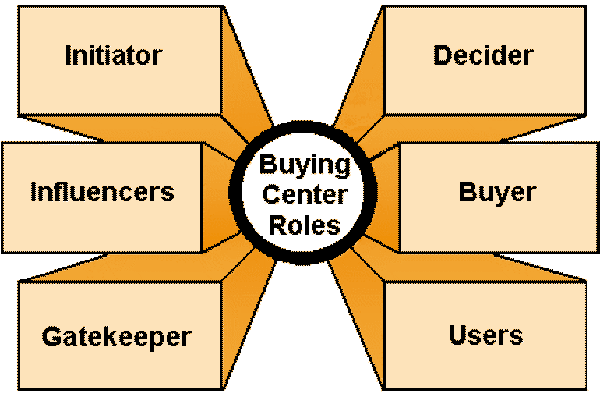Who Makes the Purchasing Decisions in Business Markets?
Figuring out who makes purchasing decisions in business markets can be difficult. Take for example, college textbooks. The end user, namely the student, doesn't really have any say in what textbook is used for a particular course. The decision is often that of the instructor, department head, or a college committee. Consequently, book sellers don't generally target students with their marketing efforts, instead focusing on college administration and faculty. B2B sellers must look to the web sites of individual institutions for their buying policies and procedures. There are often a number of people involved in purchasing decisions for a business, so knowing who to approach first is sometimes difficult. Additionally, the policies and procedures that a company follows when it seeks to purchase from another business aren't readily available to the seller, so it can be difficult for the seller to know what steps need to be taken.
Buying Centers
Buying centers are groups of people within organizations who make purchasing decisions. Large companies often have permanent departments responsible for company purchases.
Buying centers may also be referred to as buyers, purchasing agents, purchasing managers, procurement officers, or merchandisers (retailers). Buyers have a large impact on expenses, sales, and profits. Their jobs depend upon them making profitable purchasing decisions for their companies.
Other Players
Purchasing agents don't make all the buying decisions in their companies. Other players include:
- Users - the people and groups within the company that actually use the product.
- Influencers - the people who may or may not use the product but have experience or expertise that can help improve the buying decisions.
- Gatekeepers - people who decide if and when you get access to members of the buying center. These are often people with titles such as buying assistant, personal assistant, or secretary.
- Deciders - the people who make the final purchasing decisions. May be a purchasing agent for routine purchases, but for larger, more complex decisions, it could be a member of upper level management or even the CEO.

